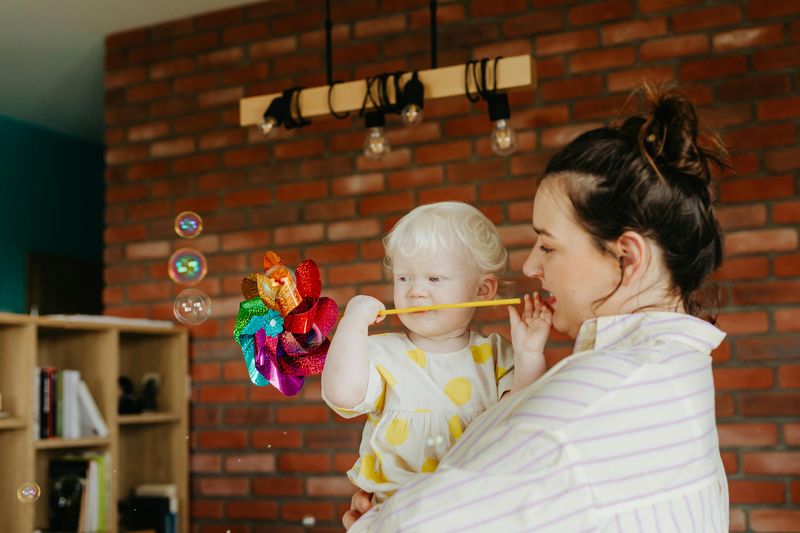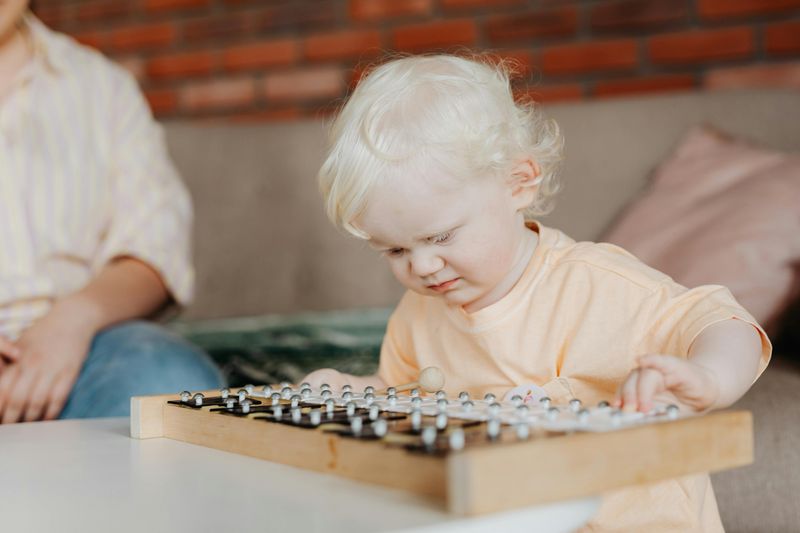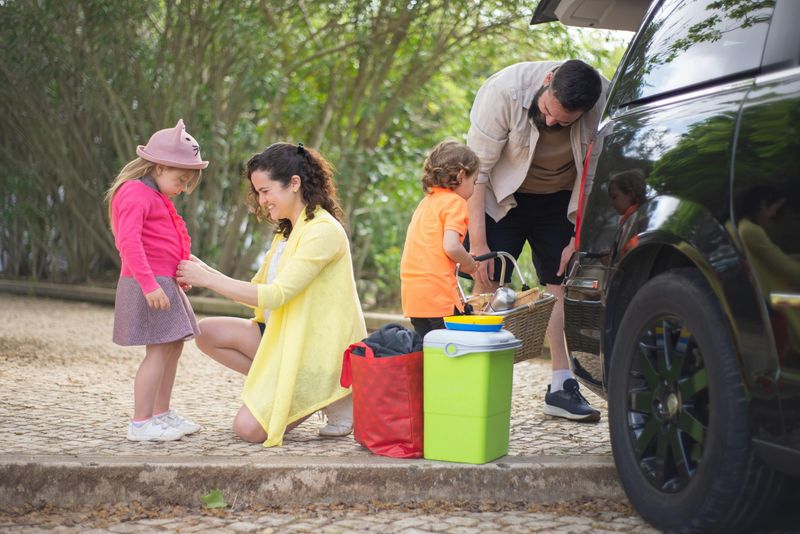15 Proven Ways Divorced Couples Can Keep Co-Parenting Drama-Free

Co-parenting after a divorce isn’t always easy, but it doesn’t have to feel like walking through a minefield. With the right strategies, you can keep things peaceful, predictable, and focused on what matters most—your kids. Here are 15 proven ways to keep the drama out of your co-parenting relationship.
1. Keep Communication Business-Like

When communicating with your co-parent, think of it like corresponding with a professional colleague. Keep your messages short, clear, and focused on the facts. Avoid sarcasm, emotional jabs, or anything that could be taken the wrong way.
The less personal you make it, the easier it is to keep emotions in check and the conversation productive. A professional tone also helps prevent misunderstandings and keeps both parties from feeling attacked. It shifts the conversation away from your past relationship and centers it on the children’s needs. Over time, this approach can help build a neutral, predictable communication pattern that works for everyone.
2. Use a Shared Calendar

Kids’ schedules can get overwhelming—sports practices, school events, birthday parties, and doctor’s appointments can quickly pile up. A shared digital calendar ensures both parents have access to the same information at all times. This eliminates the “I didn’t know about that” argument and keeps everyone on the same page.
When both parents can see updates in real time, there’s less room for missed events or confusion. It also helps children feel supported by both parents, knowing that everyone is aware of their activities and responsibilities. Think of it as a teamwork tool that keeps the focus where it belongs—on the kids.
3. Set Clear Boundaries

Protecting your time and emotional space starts with clear, intentional boundaries. Set expectations early: how often you’ll communicate, what platforms you’ll use, and how you’ll respond when someone shows up unannounced or calls out of the blue.
Boundaries aren’t about being difficult—they’re about reducing opportunities for conflict. By setting expectations early, you prevent situations that might lead to arguments. This clarity benefits the children, too, because it creates a predictable rhythm for their lives. When kids see their parents respecting each other’s limits, they feel more secure and less caught in the middle.
4. Stick to the Parenting Plan

Your custody agreement exists for a reason—it’s designed to create structure and stability for your children. Treat the plan like a commitment, showing up on time for pick-ups, drop-offs, and planned events. Consistency builds trust between co-parents and helps kids know what to expect.
Of course, life will throw curveballs from time to time. When changes are necessary, make them rare, reasonable, and mutually agreed upon. If you both stick to the plan as much as possible, it minimizes confusion, reduces tension, and reinforces the idea that your children can rely on both of you.
5. Never Use Kids as Messengers

It may seem harmless to send a quick message through your child—something like, “Tell your mom I’ll be late.” But doing this puts your child in the middle of adult issues, which can be stressful and confusing for them.
Communicating directly with your co-parent is the healthiest option, even if it’s not always comfortable. Kids should never feel like they’re carrying messages or mediating between parents. By keeping them out of the communication loop, you protect their emotional well-being and allow them to enjoy their childhood without unnecessary stress.
6. Respect Each Other’s Time

Being punctual isn’t just polite—it shows respect for your co-parent and your children’s routines. Constant lateness or last-minute cancellations can create resentment and disrupt schedules, especially for kids who thrive on predictability.
If you’re running late due to unavoidable circumstances, communicate as early as possible. A small effort to respect each other’s time goes a long way toward building a cooperative co-parenting relationship. It also sets a positive example for your children, teaching them the importance of respecting other people’s commitments.
7. Agree on Major Rules & Routines

Children thrive when they know what to expect, no matter whose house they’re in. Agreeing on consistent rules about bedtimes, homework, chores, and screen time helps create that stability. It prevents kids from playing one parent against the other or feeling caught between two different sets of expectations.
This doesn’t mean both homes have to operate exactly the same. The goal is to align on the big, non-negotiable things so your children feel secure. A united front sends the message that both parents are working together, even when they live apart.
8. Don’t Badmouth the Other Parent

Speaking negatively about your co-parent—especially in front of the kids—can cause lasting emotional harm. Children may internalize these criticisms, feeling like they’re somehow at fault or caught in the middle of a loyalty battle.
Even subtle digs or eye-rolls can send a message. If you’re frustrated, vent privately to a friend or therapist, not to your children. By keeping your language respectful, you protect your child’s self-esteem and teach them how to handle conflict in a healthy way.
9. Keep Money Conversations Separate

Financial discussions can easily become emotional, especially when it comes to child support or shared expenses. Save these talks for dedicated times and private settings, rather than bringing them up during drop-offs or in front of the kids.
Keeping money matters separate from parenting time allows you both to focus on your children when they’re present. It also helps prevent arguments from spilling over into moments that should be about connection and care, not financial stress.
10. Focus on Solutions, Not Blame

When a problem comes up—whether it’s a missed pick-up or a disagreement about school—resist the urge to rehash old grievances. Instead, focus on finding a solution that works for your child’s best interest.
Blame keeps you stuck in the past, while solutions move you forward. By adopting a problem-solving mindset, you keep conversations constructive and minimize unnecessary drama. Your kids will also see firsthand how to handle challenges with maturity.
11. Celebrate the Child’s Milestones Together

Big moments in your child’s life—graduations, birthdays, recitals—should be about them, not the divorce. When possible, attend these events together and show your child that they’re supported by both parents.
Even if you’re not sitting side by side, your child will notice your effort to put them first. It sends a powerful message that their happiness and success matter more than any lingering disagreements.
12. Be Flexible When Life Happens

No matter how well you plan, life will throw unexpected curveballs—sick days, traffic jams, or last-minute schedule changes. Showing flexibility and understanding in these situations builds goodwill and reduces tension.
Flexibility also models resilience for your children. When they see you adapting calmly to change, they learn that life’s hiccups don’t have to become full-blown crises.
13. Use Neutral Drop-Off Locations

If pick-ups and drop-offs are a source of tension, consider meeting in a neutral, public place. Libraries, parks, or even a coffee shop can make the transition less stressful for everyone.
A neutral location helps reduce emotional triggers and keeps interactions brief and to the point. This can be especially helpful in high-conflict situations, ensuring the focus remains on the child rather than on past disagreements.
14. Keep Personal Lives Separate

Your dating life, family drama, or work stress doesn’t need to be part of co-parenting conversations. Sharing too much can blur boundaries and open the door for unnecessary tension.
By keeping personal matters private, you keep the focus where it belongs—on your children. This also prevents situations where one parent feels entitled to comment on or interfere with the other’s personal choices.
15. Always Put the Child’s Needs First

Every decision, from holiday plans to daily routines, should be guided by one question: “What’s best for our child?” This perspective keeps emotions in check and helps you stay focused on the bigger picture.
Putting the child first often means compromising or letting go of small disagreements. In the long run, those sacrifices are worth it for your child’s sense of stability, security, and love from both parents.

Comments
Loading…